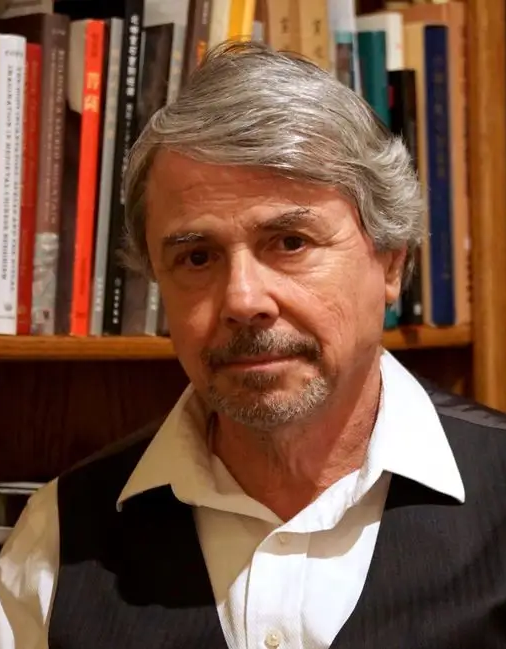包华石(Martin Powers)教授是饮誉中外的汉学家与艺术史家。自青年时代起就以巨大的热情投入到中国文化艺术的学习与研究中,出版学术专著4部(其中两部获得了列文森奖),主编学术论文集3部,发表各类学术论文50余篇,参与各类研讨会和专场学术报告110余场,指导博士生30余名,对于推动中国文化艺术在海外的传播与深入理解、提高中国文化艺术在国际领域的地位作出了极其重要的贡献。
自1980年代起就因其在中国文化艺术研究领域的突出表现受邀他还长期担任Ars Orientalis的编审;Getty Grant Program 盖蒂基金、的顾问等职。
他致力于从艺术史角度,探讨中国古代政治社会关系,重塑中国文化艺术的本来历史地位。Powers教授成名较早,自1980年代以来,广泛活跃于欧美及中国两岸三地,曾先后在德国波恩大学、加拿大阿尔伯塔大学、美国国家美术馆、耶鲁大学、普林斯顿大学、哈佛大学、台北“中央研究院”历史语言研究所、香港中文大学、清华大学国学院、北京故宫博物院等地访学与讲学,并曾担任广州美术学院荣誉教授。
其研究奠定了中国艺术与政治关系研究的基础,推动了社会艺术史的研究,并对重塑中国文化艺术的本来地位,反思西方学界对中国文化艺术的误读有重要贡献,是当今汉学界和中国艺术史学界最负盛名的学者之一。
Professor Powers has been highly acclaimed as a sinologist and historian of art both in China and abroad. He early on developed a profound interest in Chinese culture and art, publishing four monographs, two of them having won the Levenson Prize for best book in pre-1900 Chinese Studies. He as also edited or co-edited three volumes, and has published more than 50 articles on a wide range of topics. In addition, he designed the educational website chinamirror.net, which provides source materials on Chinese history for advanced high school and college teachers. He has participated in more than 110 scholarly conferences and projects and mentored more than 30 Ph.D. students. He has been instrumental in promoting greater appreciation and understanding of Chinese culture in the West and has contributed to the international standing of the field of Chinese Art History.
From the 1980s onward his reputation grew with a Mellon Fellowship at the Center for Advanced Study in the Visual Arts in National Gallery, as well as awards from the American Council of Learned Societies, the National Endowment for the Humanities, and many more. He was the first scholar of Asian Art to be invited to the Getty Institute for the Humanities. He has served as reviewer or selection board member for the Center for Advanced Studies, NEH, the Getty Institute, and many more.
His research has made use of art historical methods to examine the social and political history of China, reshaping the international standing of Chinese culture. Professor Powers’ reputation developed from the 1980s onward. Since then he has participated in scholarly activities in America, Europe, and China. He has been a resident scholar or has delivered papers at Bonn and Gottingen Universities, Germany; The University of Alberta, Canada; East Anglia University in England; the National Gallery of Art in Washington, D.C.; Yale University; Harvard University; The Princeton Institute for Advanced Study; Academia Sinica in Taipei; The Chinese University in Hong Kong; the Institute for National Studies at Tsinghua University; the National Palace Museum, Beijing; and has served as honorary professor at the Guangzhou Academy of Fine Arts, among others.
His research has been foundational for the study of the interplay between Chinese art and socio-political institutions, and has advanced the study of social history, reshaping the international standing of Chinese culture. In addition, his work has provoked the rethinking of mistaken narratives about Chinese culture in the Western Academy. He is among the most renowned scholars in the fields of Chinese Art History and Chinese Studies.



